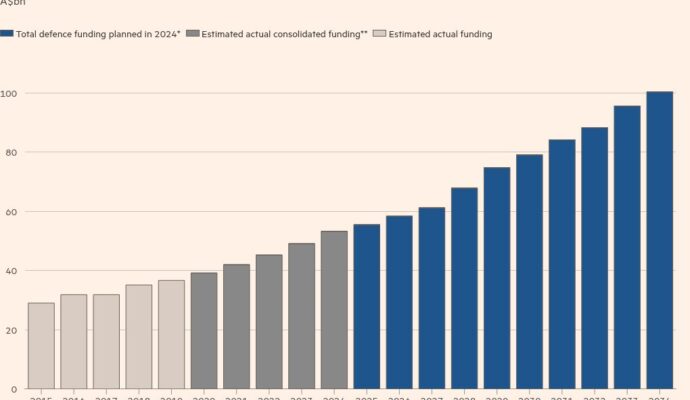Unlock the Editor’s Digest for free
Roula Khalaf, Editor of the FT, selects her favourite stories in this weekly newsletter.
The world’s advanced economies risk a significant GDP loss if they move too quickly to localise supply chains as a result of the deteriorating geopolitical environment, the OECD has warned.
Modelling by the international organisation found that aggressive reshoring of supply chains could decrease global trade by 18 per cent, with some countries losing up to 12 per cent GDP compared with persevering with a globalised trading regime.
The Paris-based OECD, which represents most of the advanced economies, issued its warning as rising trade tensions between the US and China have intensified questions in boardrooms about the risk posed by integrated supply chains.
Marion Jansen, head of the OECD’s trade and agriculture directorate, said the report provided a cautionary counter-narrative to advanced economies that were in danger of swinging too far in the direction of autarky.
“In the past, we perhaps underestimated the risk of over-dependency on a single trade partner, but swinging too far towards localising and avoiding international trade would be another mistake, leaving us exposed to domestic shocks and huge inefficiencies,” she added.
The OECD used econometric modelling to assess the impact of re-localisation, which it defined as imposing higher import tariffs, using subsidies to encourage domestic production and imposing restrictions on sourcing inputs from certain countries.
The Supply Chain Resilience Review found that China’s rise as a manufacturing powerhouse over the past 25 years had shifted the balance of trade.
Since 2009 export restrictions on critical industrial raw materials have increased fivefold, with China becoming a dominant trading partner for a growing number of countries.
Dependency on China had “increased considerably” for several OECD member countries and regions since the mid-1990s, the analysis found, particularly in advanced manufacturing sectors such as cars, pharmaceuticals, lifts and machine parts.
Canada, France, Germany and the UK were the most exposed to supply chain shocks, while countries that relied more on domestic production, including the US, Brazil and China, were relatively less exposed.
As a result of its dominance of many advanced manufacturing sectors, China is the single most important country for creating “trade dependencies” for OECD members.
By the early 2020s, the study found, China was the main trading partner in 30 per cent of cases where countries had “significantly concentrated imports”, compared with 5 per cent in the late 1990s.
For OECD members, however, these dependencies were frequently “mutual”, playing out in both directions, while for other large non-OECD economies, such as Brazil, India, Indonesia and South Africa, the growth of import dependency with China “appears more one-sided”.
Still, the modelling indicated that supply chain localisation made countries no more resilient to external shocks, with more than half the economies becoming more vulnerable to booms and busts than if they had continued with the interconnected global regime.
“This runs counter to some of the claims in the general debate on the risks of GVCs [global value chains],” the report said, adding that “openness and geographical diversification” offered greater options for adjusting to disruptions.
Data visualisation by Will Crofton



